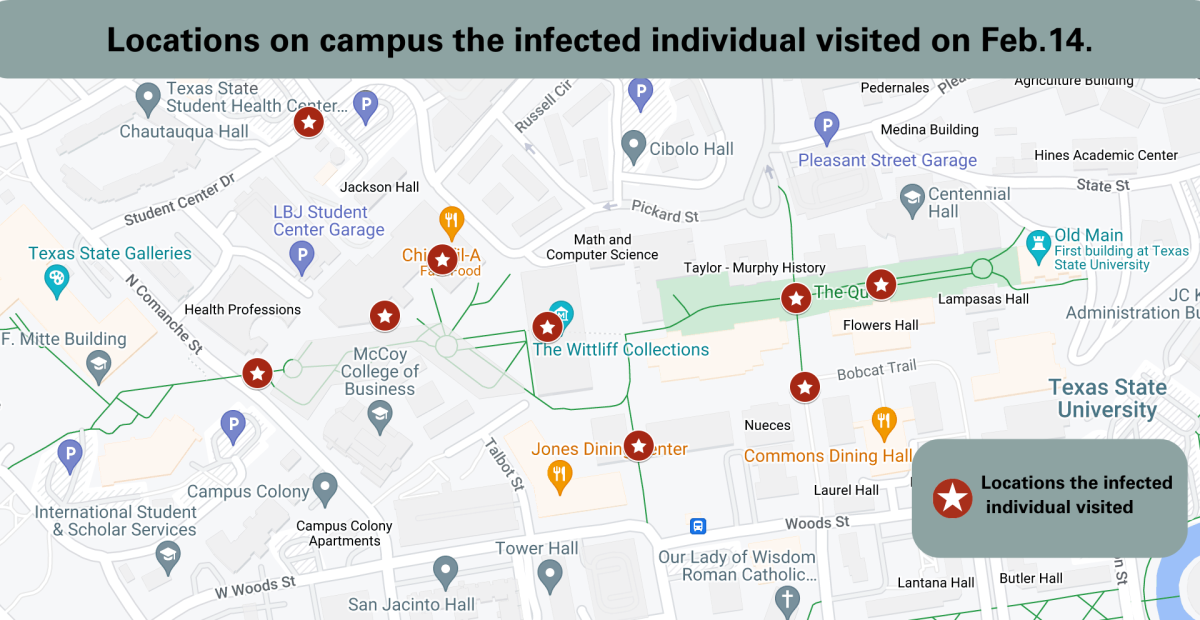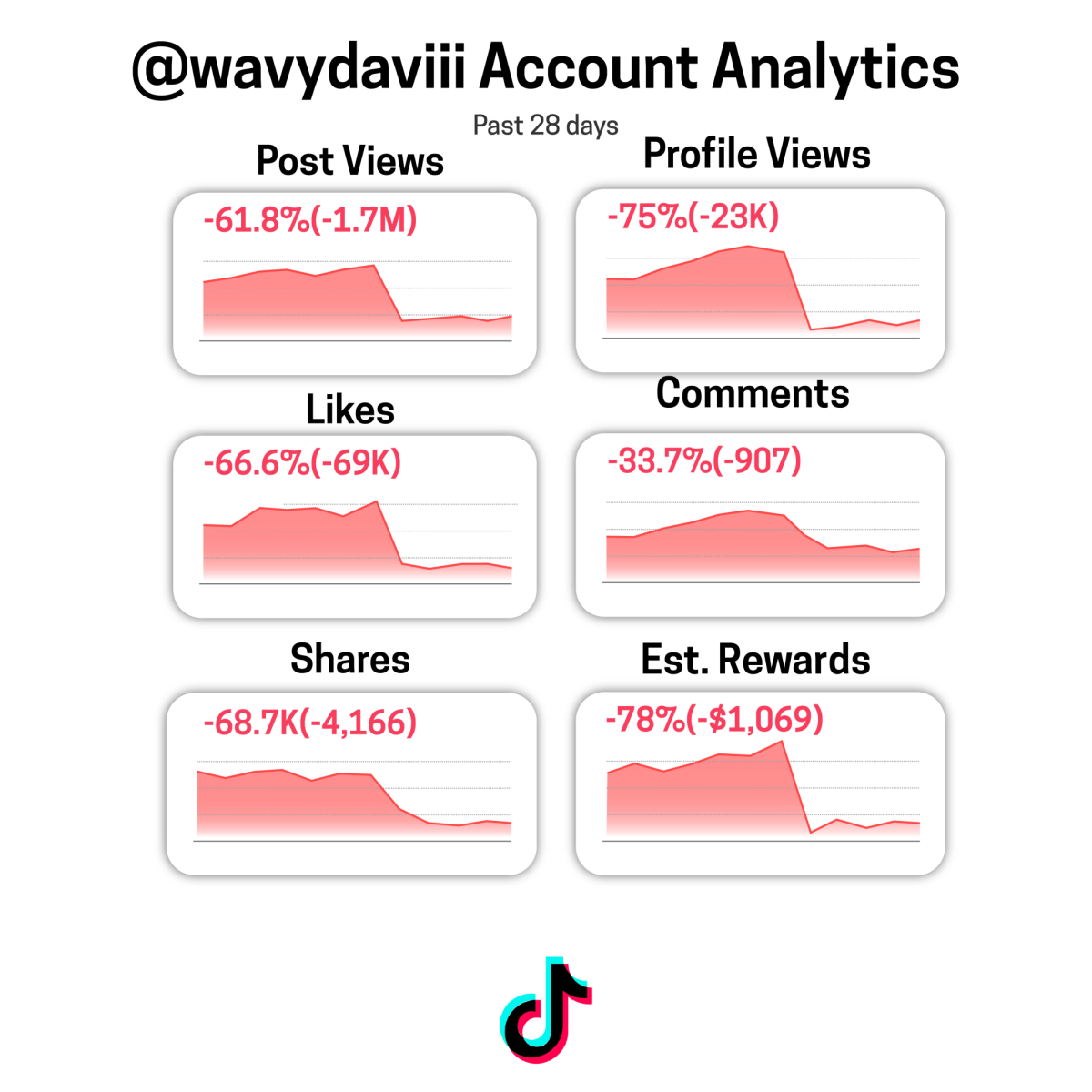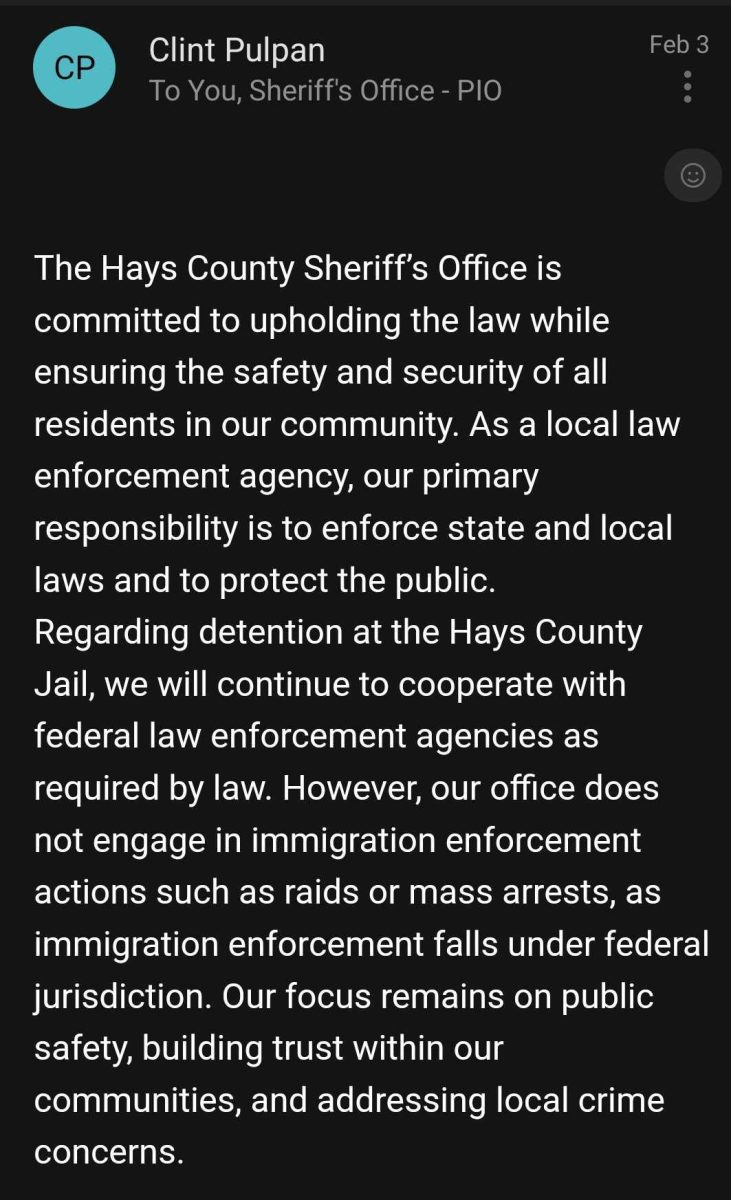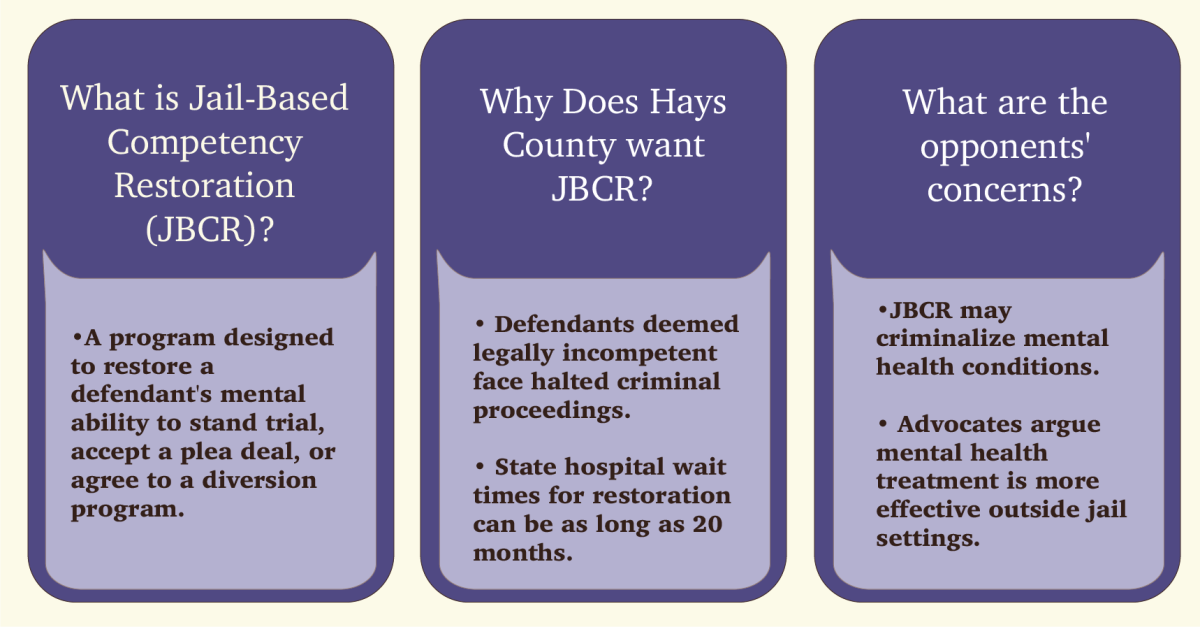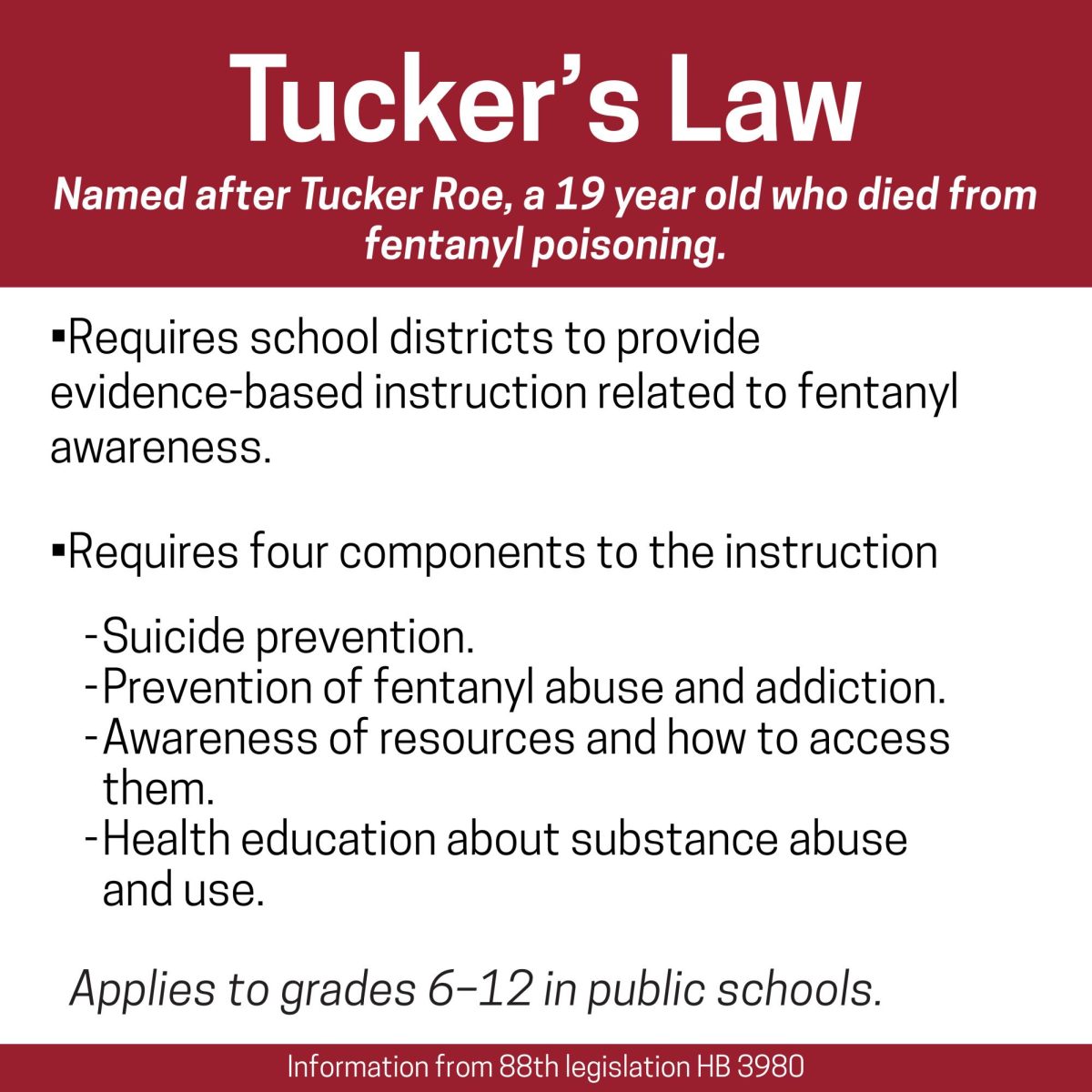March 7 Update: The measles incubation period has passed at Texas State with no additional reported cases, according to Senior Media Relations Manager Jayme Blaschke.
After an individual who toured Texas State last week tested positive for measles, Hays County Health Department said the risk of the disease spreading in the county is low.
Hays County looked at three factors to determine the risk of the measles case: vaccination status with a positive patient, symptom onset of the positive patient and vaccination status within the community. The individual has one dose of the measles, mumps and rubella (MMR) vaccine and did not develop rashes until Feb. 20, six days after they visited campus, according to Natalie Frels, Hays County communications manager.
“The individual visited San Marcos outside the most optimal time for virus transition,” Frels said. “These two facts alone give us a little confidence that we won’t see spread [in Hays County].”
Hays County Health Department Epidemiologist Madison McLarry said one dose of the MMR vaccine is 93% effective and a vaccinated individual is considered low-risk. However, vaccinated individuals who do get infected with measles may show atypical or milder symptoms.
The infected individual is from Gaines County, Texas and visited Texas State on Feb. 14 from about 3 to 7 p.m. and visited Twin Peaks off I-35 from 6 to 10 p.m.
Additionally, the infected person visited the University of Texas at San Antonio on Feb. 15 between 10 a.m. to 2 p.m., the Riverwalk from 2:30 to 5 p.m. and Mr. Crabby’s Seafood and Bar from 6 to 8 p.m.
However, the individual went to the New Braunfels Bu-cee’s between 9 a.m. and noon on Feb. 16, which may be first day when the individual could be infectious. According to the Center for Disease Control and Prevention, someone can spread measles to others four days before through four days after the rash appears.
Measles is spread through direct contact with infectious droplets or through the air when an infected person breathes, coughs or sneezes, the Texas Department of State Health Services (DSHS) stated.
If anyone was exposed to the infected individual, Frels said they should fill out an Exposure Self-Report Form with the Hays County Health Department. She also said vaccinated individuals who were exposed should self-monitor for 21 days for any symptoms, while the Hays County Health Department is actively monitoring unvaccinated individuals who were exposed.
“We are still getting in contact with people who we believe were exposed, and the Health Department will continue to monitor and conduct case investigations,” Frels said.
As of Feb. 24, there are no individuals in Hays County infected with measles, Frels said.
According to Texas State’s University Health Services, people can get the MMR vaccine at the health center’s Nurse Clinic by calling 512-245-2161 and at local pharmacies and health clinics. Additionally, uninsured individuals can get vaccinated at Communicare off I-35 and Wonder World Drive.
For anyone who already has the MMR or Measles, Mumps, Rubella and Varicella (MMRV) vaccines or was exposed to measles as a child, McLarry said they are considered fully up to date, regardless of when they were vaccinated or exposed. McLarry also said the Health Department is not currently recommending boosters.
Texas-born individuals without access to their childhood vaccination records can request them through the DSHS ImmTrac2 website by submitting a mailed release form.
University Health Services states the following people should not get the MMR vaccine: people with a severe allergy to ingredients like neomycin, pregnant individuals, people with immune system issues and people born before 1957, who are considered naturally immune.
According to the Texas Department of State Health Services (DSHS), 90 measles cases are confirmed as of Feb. 21 in Texas, with 57 cases reported in Gaines County. In the 2023-24 school year, Gaines County also ranked as the county with the highest unvaccinated rate in Texas at about 18%.
Measles is highly contagious. According to the National Foundation for Infectious Disease, measles is so contagious that “up to 90% of the people close to that person who are not immune will also become infected.”
Despite this, Texas State currently has no plans in response to the contagious case, such as quarantines and additional testing, according to Senior Media Relations Manager Jayme Blaschke. Additionally, Texas State could not confirm if the infected individual was part of an official group tour with the university even though Hays County provided a map of a campus tour.
Blaschke stated while the MMR vaccine is not required for students, it is “recommended.” The state-mandated Meningitis shot is the only required vaccine by Texas State.
Some symptoms of measles include a high fever of up to 105°F, cough, runny nose, red, watery eyes, sore throat and a rash that typically appears 3-5 days after the initial infection.



